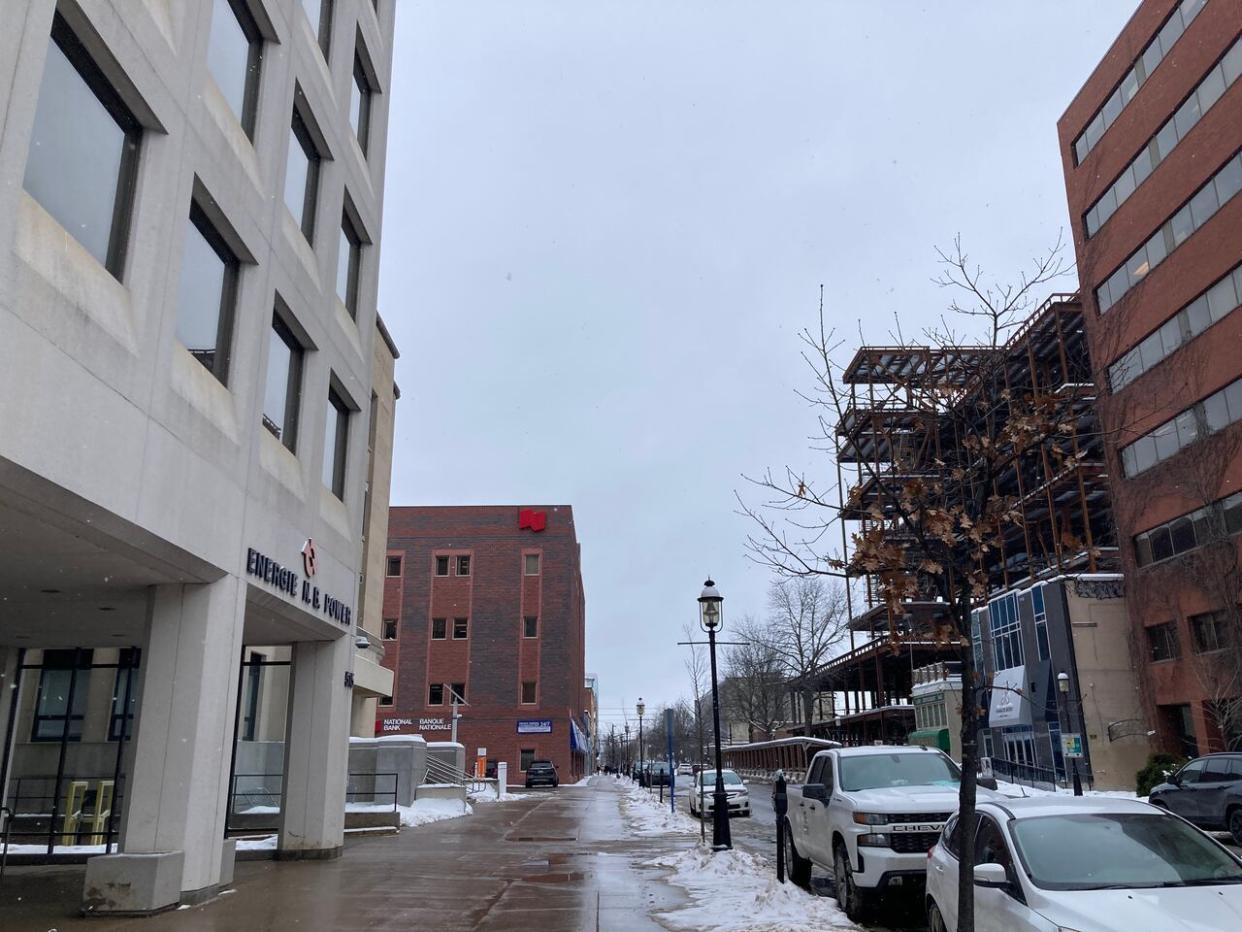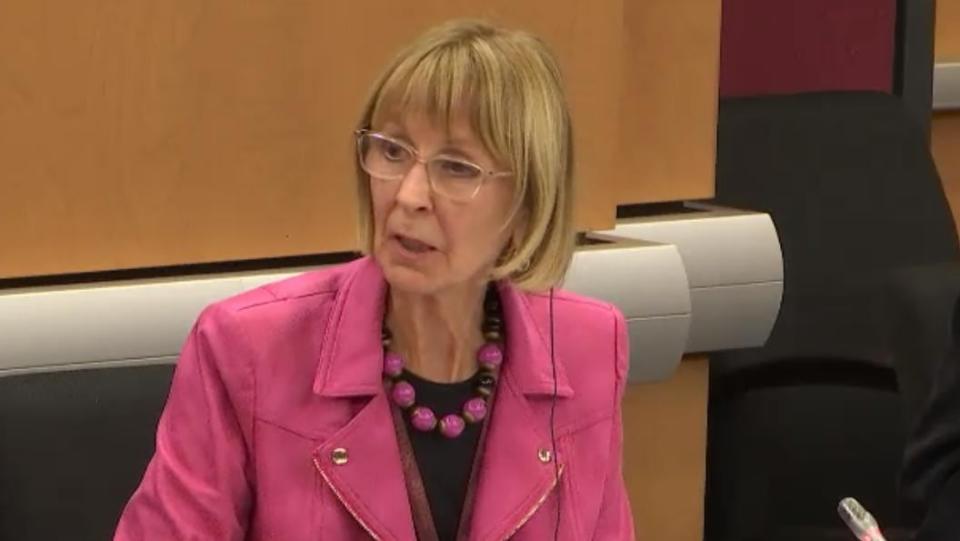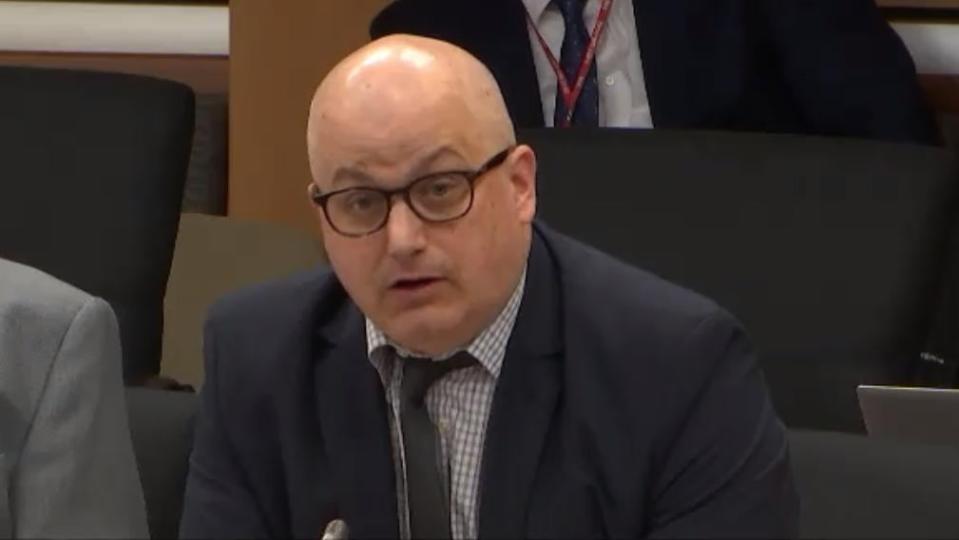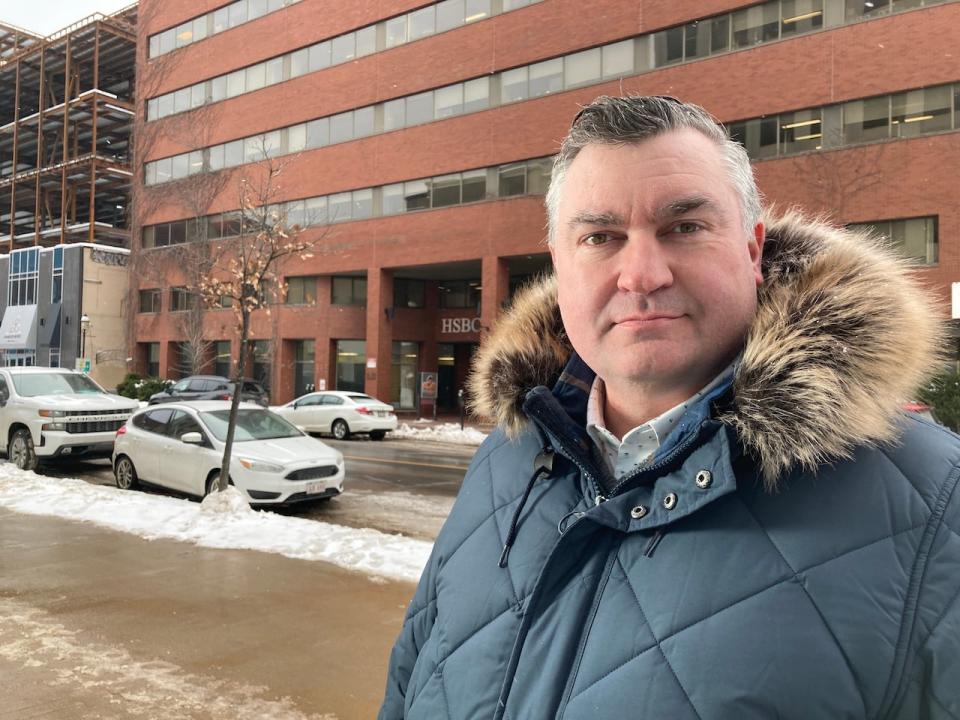Fredericton's curious 'rural' carbon rebate top-up a deliberate choice, officials say

Fredericton's seemingly absurd "rural" carbon-tax status is part of a deliberate policy choice by the federal government to avoid yanking extra rebate money away from a handful of communities already receiving it, top tax officials confirmed this week.
The city is one of several communities across Canada that became, or joined, a "census metropolitan area" in the last census in 2021 — but that Ottawa has decided to keep calling "rural" so residents get an extra 10 per cent on their carbon rebate.
People living outside census metropolitan areas, or CMAs, are considered rural residents eligible for the additional money.
Six cities met the criteria to become CMAs in the 2021 census, including Fredericton.

Conservative Sen. Elizabeth Marshall of Newfoundland and Labrador called the amendment to the federal Income Tax Act 'peculiar.' (Senate of Canada)
But an amendment to the federal Income Tax Act quietly working its way through Parliament says the formula for the carbon tax rebate top-up will be based on the 2016 census, not the 2021 version.
"That's very peculiar," Conservative Sen. Elizabeth Marshall of Newfoundland and Labrador said of the amendment this week during a Senate committee meeting.
The amendment is buried in a 523-page bill implementing the government's fall economic statement.
Finance Department officials told Marshall the change was aimed at communities that became or joined CMAs after the 2021 census.
"The government's view was basically that it didn't want individuals to lose entitlement to the rural supplement because of those changes in census metropolitan areas," said Pierre LeBlanc, the director general for personal income tax at the federal finance department.
"So therefore you have the proposed amendment in the bill, basically for a couple of years, to fix — to continue using the 2016 census definition."
Marshall asked: "That's a policy decision. Am I interpreting that right?"
LeBlanc said she was.

Pierre LeBlanc, the director general for personal income tax at the federal finance department, said the 10-per-cent top-up for rural residents recognizes they have 'less opportunity to avail themselves of clean transportation options.' (Senate of Canada)
The legislative fix is more ammunition for opponents of the carbon tax, including Brian Macdonald, the federal Conservative candidate for Fredericton.
"Fredericton is clearly an urban area, and it seems like Stats Can has decided that. Now it takes an act of Parliament to turn back the clock to 2016 for the reason of some tax benefit," he said.
"This kind of convoluted, overcomplicated strategy to fix a problem by turning back the clock is ridiculous. Let's just get rid of the tax."
The point of the carbon tax is to nudge drivers toward lowering their consumption of gas, thereby reducing emissions that are changing the climate.
According to the Trudeau government, most Canadians get back more in rebates than they pay.
The 10-per-cent top-up for rural residents recognizes they have "less opportunity to avail themselves of clean transportation options," LeBlanc told senators.
The top-up is increasing to 20 per cent in the new fiscal year that starts April 1. The carbon tax itself and the base rebate amounts will also increase.

The legislative fix is more ammunition for opponents of the carbon tax, including Brian Macdonald, the federal Conservative candidate for Fredericton. (Jacques Poitras/CBC)
Fredericton's curious rural status came to light last month when a couple living outside Saint John went public with their confusion over why they're not eligible for the top-up.
"We've always assumed that we lived in rural New Brunswick," said Cathy Morrison, pointing to her 40-minute drive — which includes a ferry trip — to get to the city's uptown.
The Morrisons learned they live within the CMA of Saint John, depriving them of the $13.80 rural top-up on their quarterly rebate of $138 this year.
They also discovered that a similar couple living in downtown Fredericton is considered "rural" and will get the $13.80 every three months.
The federal finance department's explanation to CBC News last month was that "there are two Census Metropolitan Areas (CMAs) in New Brunswick: Moncton and Saint John.
"Any New Brunswicker living outside of these areas is eligible for the rural supplement in 2023-24."
But Fredericton was, in fact, among six Canadian cities designated by Statistics Canada as CMAs after the last census in 2021, according to spokesperson Koraly Pepin.
"We can confirm that Fredericton, New Brunswick is a Census Metropolitan Area," Pepin said in an email.
The others were Drummondville, Que., Red Deer, Alta., and Kamloops, Chilliwack and Nanaimo, all in British Columbia.
Some other areas "that aren't particularly urban" were added to existing CMAs in the 2021 census, LeBlanc said this week. East Hants, N.S., joined Halifax, for example.
The amendment designates the 2016 census as the "relevant census" so residents of communities like that don't lose the top-up, he said.
Of the six cities that became CMAs in 2021, Fredericton is unique, carbon-tax-wise.
Quebec and British Columbia have their own carbon pricing systems so they aren't subject to the federal tax and residents don't get rebates.
That means no change for Drummondville, Kamloops, Chilliwack and Nanaimo.
Alberta's been subject to the federal system since 2020, so Red Deer residents have been collecting the rural top-up since then, and would have lost it if not for the federal change.
New Brunswick, however, only moved under the federal system last year, so Fredericton residents never had a rural top-up they were at risk of losing when they got CMA status.

Fredericton's curious rural status came to light last month when a couple living outside Saint John went public with their confusion over why they're not eligible for the top-up. Cathy Morrison, pictured here, said she always assumed she lived in rural New Brunswick. (Jacques Poitras/CBC)
Residents here collected their first rebates last July and will get their top-ups retroactively after they file their 2023 income tax returns this spring.
Fredericton Liberal MP Jenica Atwin did not respond to a request for comment.
LeBlanc told senators further changes to eligibility could happen.
"I think you can expect the government to continue to look at the rural supplement, [at] which areas qualify, to make sure that this feature of Canada's carbon rebate serves its purpose," he said.
According to the federal legislation, the 2016 census will remain the reference point for who gets the extra money until the 2025 taxation year — meaning the next election will have come and gone by the time Frederictonians are officially CMA dwellers and lose their top-ups.


